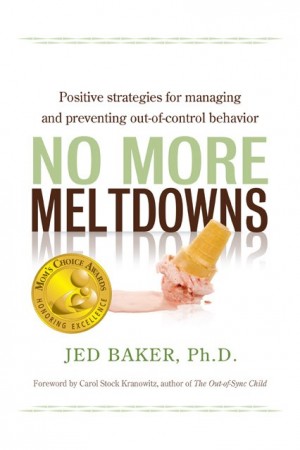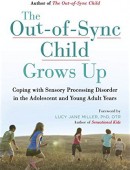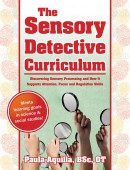Description
It could happen at the grocery store. At a restaurant. At school. At home. Meltdowns are stressful for both child and adult, but Dr. Baker can help! Author of the award-winning Social Skills Picture Book series, Dr. Jed Baker offers parents and teachers strategies for preventing and managing meltdowns. His 20+ years of experience working with children on the autism spectrum, combined with his personal experiences raising his own children, have yielded time-tested strategies, and results! Dr. Baker offers an easy-to-follow, 4-step model that will improve your everyday relationships with the children in your life: 1) Managing your own emotions by adjusting your expectations, 2) Learning strategies to calm a meltdown in the moment, 3) Understanding why a meltdown occurs, and 4) Creating plans to prevent future meltdowns.
ALSO, BE SURE TO CHECK OUT THE NO MORE MELTDOWNS APP, NOW AVAILABLE ON ITUNES!
Binding: Paperback
Pages: 150
Having earned his MA and Ph.D. in clinical psychology from the University of Albany, Dr. Jed Baker is a behavioral consultant for several New Jersey school districts where, nearly two decades ago, he organized a group to help children with social communication problems. That group expanded and ultimately became the Social Skills Training Project under Dr. Baker’s directorship. Dr. Baker also presents lectures all over the world on social skills training, and is on the board of directors of the Asperger’s Syndrome Education Network, Inc. (ASPEN). His work has been featured on ABC News and Nightline.
“Jed Baker, in this excellent book, gives us the tools to deal with and prevent out-of-control behavior. Wisely, he leads us grown-ups to understand how to change our own behavior in order to help our children change theirs.” —Carol Stock Kranowitz, author of best-seller The Out-of-Sync Child
Foreword Introduction THE PROBLEM Chapter 1: Meltdowns: When rewards and punishments are not enough What is a meltdown? The usual parenting advice: start with rules and consequences The limits of discipline: when rewards and punishments no longer work But aren’t meltdowns just manipulative behavior? Can we really expect no more meltdowns? An overview of the four-step model for reducing meltdowns Chapter 2: What are meltdowns made of? Fight, flight or freeze response Temperament Difficulties with abstract thinking and perspective taking Inflexibility An explosive combination THE SOLUTION Chapter 3: Accepting and appreciating our children Controlling our own frustration Building competence Avoiding learned helplessness The 80/20 rule Anticipating frustration as part of learning When to avoid power struggles Chapter 4: De-escalating a meltdown How to de-escalate a meltdown Distractions When too much distraction can make things worse Helping children find their own distractions and calming strategies Steps for creating self-calming strategies Chapter 5: Understanding why repeat problems occur Understanding the triggers The ABCs of behavior: Antecedent, Behavior, Consequence Getting the ABCs: Interviews and observations Seeing the pattern Chapter 6: Creating a prevention plan The components of a good prevention plan A prevention plan for Kevin The four types of meltdown situations Plans for the Four Types of Meltdown Situations Chapter 7: Demands Do your schoolwork Try it, it’s delicious Hurry up, the bus is coming Clean up Let’s go to the party Chapter 8: Waiting Just wait You can’t always get what you want Okay, time to stop playing Chapter 9: Threats to self-image Winning isn’t everything It’s okay to make mistakes But names will never hurt you Chapter 10: Unmet wishes for attention I can’t play with you now Don’t be jealous Time to go to bed Chapter 11: Closing thoughts: Finding your own way Prevention plan form References.



